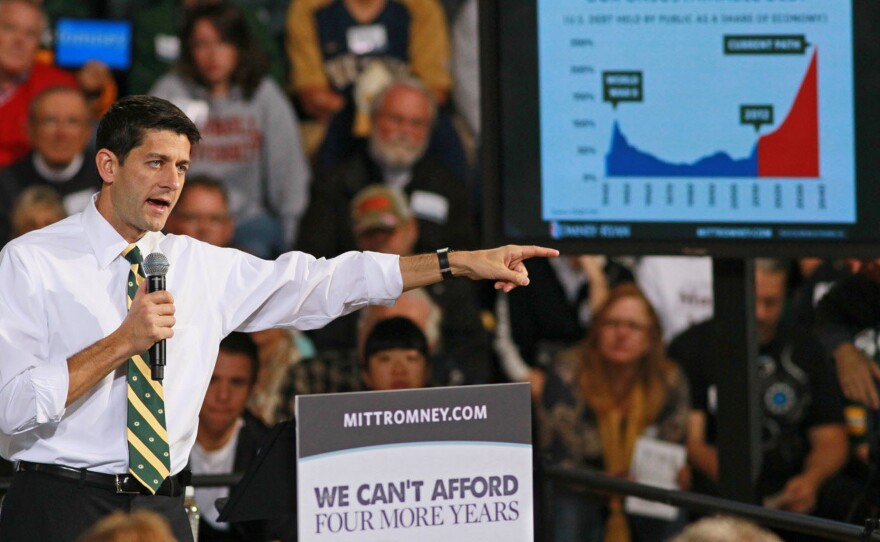House Budget Committee Chairman Paul Ryan of Wisconsin, the 2012 Republican vice presidential nominee, will unveil his latest budget plan Tuesday morning -- and as NPR's Tamara Keith told our Newscast Desk, he'll say it would bring the federal budget in balance by 2023.
Ryan's previous proposal, he said, would balance the budget in 20 years. How has he cut 10 years off that time? The "fiscal cliff" deal reached as 2012 turned into 2013 "raises $600 billion in tax revenue over the next decade," Tamara reported, "and Ryan is including that in his new budget."
"Otherwise," she added, "Ryan has telegraphed that his new plan will include many of the same cuts as past GOP budgets, most notably it would convert Medicare into a premium support program."
On the op/ed pages of The Wall Street Journal today, Ryan makes his case for the new plan.
"How do we do it?" he writes. "We stop spending money the government doesn't have. ... Our budget matches spending with income. Under our proposal, the government spends no more than it collects in revenue -- or 19.1% of gross domestic product each year. As a result, we'll spend $4.6 trillion less over the next decade. ...
"Our opponents will shout austerity, but let's put this in perspective. On the current path, we'll spend $46 trillion over the next 10 years. Under our proposal, we'll spend $41 trillion. On the current path, spending will increase by 5% each year. Under our proposal, it will increase by 3.4%. Because the U.S. economy will grow faster than spending, the budget will balance by 2023, and debt held by the public will drop to just over half the size of the economy."
President Obama and his fellow Democrats, of course, have other ideas about how to get the federal government books in order. Politico this morning looks at the president's new efforts to reach out to some Republicans in order to cut a deal. It concludes though, that "the expectations for both a sustainable civil alliance and a grand bargain remain low for one very simple reason: The parties are further apart on taxes and entitlements than they were in 2011 when Obama and House Speaker John Boehner (R-Ohio) first entered into talks and came close to striking the ever-elusive grand bargain."
Copyright 2013 NPR. To see more, visit www.npr.org.






